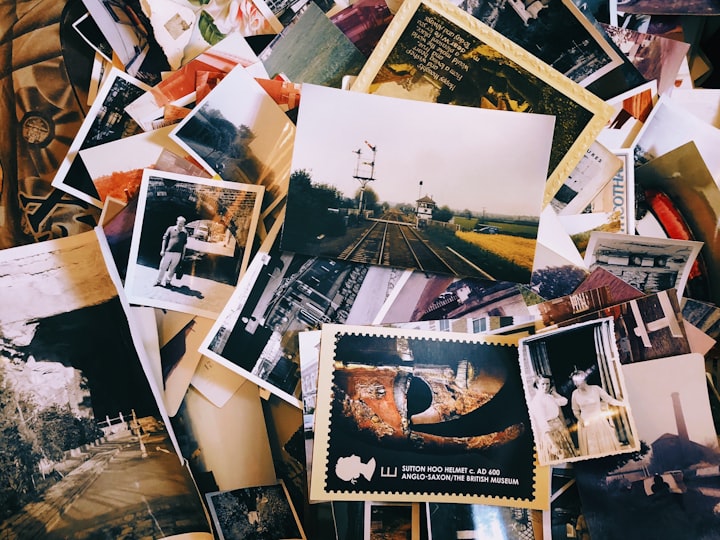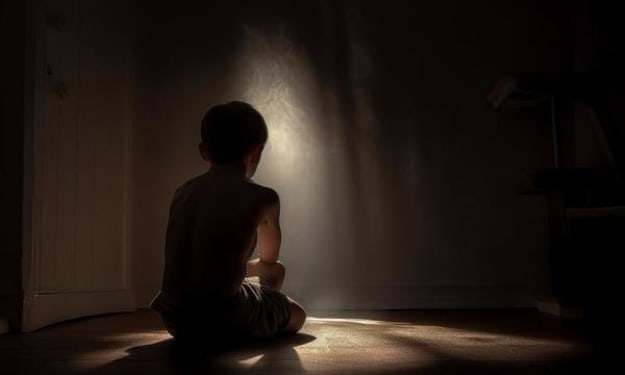Planning for Memory Loss: The End-of-Life Plan We’re Leaving Out
It could happen to you
I think that one day my memory will be lost — and pieces of who I am will be lost with it. I’ve witnessed that slow slide into oblivion and wondered what I was meant to do. Would trying to talk cause frustration, or was I meant to be an anonymous comfort? How would the ones I love want to be cared for as the pieces of who they once were drifted away like clouds in the sky? How would they like to be loved?
We don’t have these kinds of end-of-life conversations, so we don’t know. We do our best and wonder if it’s ever good enough.
Confronted with grandparents who lost their memories and a neuro-endocrine disorder that often clouds my own mind, I began to think about how I want to be loved through the loss of my own memories. I have no idea if I’ll one day find myself lost in the fog of dementia, but I do know that I need a plan long before it begins, should it begin.
At the age of 41, it may seem unlikely that I’ll have to deal with memory loss anytime soon. Yet, expecting the unexpected is the reason we have attorneys prepare a will and let our loved ones know how we want emergencies handled in the event we cannot decide for ourselves. These conversations may seem morbid, but they’re truly a kindness to the people we love — a way to reassure them that they are following our wishes if the worst should happen.
Planning for memory loss is no different. It can be a guide for those who might find themselves caring for us. It’s a roadmap not only to who we are but to how we’d hope to be treated.
A Plan for Memory Loss
We need to create a plan that brings in a full sensory experience. I began to consider what experiences might offer comfort. While this would need to be individually customized, here are a few ideas.
What If You Could Read Your Favorite Book Again for the First Time?
If you could read your favorite book again for the first time, wouldn’t you? I would love to read them again or have them read to me. As a part of planning for possible memory loss, we can make a list of books we’d love to have reintroduced to us. Enjoy the experience of having an old forgotten favorite become a new favorite again.
Sensory Pleasures: What Are Your Favorites?
We all have different sensory experiences that act as comfort. I like to be touched and held, to have my hair stroked or combed, and to hold hands. We can say with touch what words cannot. Gentle, intentional contact can let us know we’re loved and cared about even if it’s just a simple hand massage or rubbing lotion into our skin.
Bubble baths and aromatherapy offer other sensory experiences. We can write down what scents we enjoy and what might bring back fond memories. We can list our favorite songs, too — the ones that are most likely to bring us back to ourselves … even if only for a moment.
Flavors work the same way. Our life comes back to us in these memories. I think of tea cakes served by an elderly neighbor, warm snickerdoodles served up with chocolate milk in school, chocolate oatmeal cookies prepared by my mother, fresh cherries from a tree in my grandmother’s yard, and chocolate gravy poured over biscuits — the treats of my childhood. We can let our favorite foods be a way for our loved ones to help reconnect with us.
Patience with the Process — And Then More Patience
I worry sometimes that my memories will leave me trapped inside the most frightening years of my life. Lead me out with a gentle song, a sweet treat, or handpicked flowers. Take me on walks or show me sunrises and sunsets that I’ve never seen before and never will again. Most important of all, be patient.
I’ve watched the frustration on the faces of carers dealing with memory loss, but I’ve also felt it in myself. It’s hard to want to connect with someone who is losing their memory of you. Patience is such an important part of the process. Memories may come back, but they’ll surely go again. Treasure the good moments, and be compassionate with the challenging ones.
Returning to Ourselves — the Ultimate Goal
I watched my grandmother, an avid reader and champion player of board games, become less interested as she progressed in her battle with memory loss. She changed, but she was still perfectly herself. One of the challenges to planning for memory loss is that we want to be reminded of who we were, but it’s possible that who we become changes and interests are lost along the way.
Maybe the plan should be simple — to tell the story of our lives, to make us life, to make the time we have left count even when we won’t remember a second of it. Maybe we should ask to be surrounded by love — even if all we see is a room full of kind and loving strangers.
A Plan for What Might Be
I might make a plan for memory loss and never lose my memory. I think about what I know now from watching it happen to people I love. I often consider how I might have handled it differently if I’d been better prepared for it to happen.
Too often, we distance ourselves from people who lose their memory. We think it doesn’t matter as much because the memories made will soon be lost. But it matters all the more. Every moment is precious — simply because each one is fleeting. They won’t get to preserve it in glass and reflect on it another day. It may only exist in that moment — but don’t think for a second that it doesn’t matter.
When we think of end-of-life plans, we might consider estate planning and living wills, the ins and outs of how we want our deaths managed by those who stay on to live and grieve, but it’s important to plan for the other aspects of aging. Memory loss is prevalent, and I wonder sometimes if I’ll be among those whose memories simply take flight.
If I am, I want to be ready — to provide a little guidance for those left in bewilderment when I begin to fade. I want to give them something to hold onto and, in turn, give me something to hold onto, too. I approach the list with comfort, not with fear. I am not resigning myself to an as-yet undetermined fate. I am looking forward with clear eyes and hope in my heart that whatever comes, I’ll face it.
Originally published on Medium
About the Creator
Crystal Jackson
Crystal Jackson is a former therapist turned author. Her work has been featured on Medium, Elite Daily, NewsBreak, Your Tango, and The Good Men Project. She is the author of the Heart of Madison series and 3 volumes of poetry.
Enjoyed the story? Support the Creator.
Subscribe for free to receive all their stories in your feed. You could also pledge your support or give them a one-off tip, letting them know you appreciate their work.







Comments
There are no comments for this story
Be the first to respond and start the conversation.